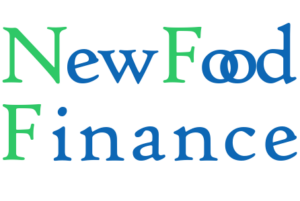Antibiotic and methane rules fuel animal feed innovation
Chart of the Week – Antibiotic and methane rules fuel animal feed innovation

The use of sustainable livestock feed additives is growing, driven by advances in animal nutrition science, and growing regulatory scrutiny, for example around antibiotic use in agriculture, and methane emissions.
We summarise key relevant markets as digestive health; animal health in general; ruminant burp suppressants to reduce emissions of the greenhouse gas methane; and antibiotic alternatives (see our Chart of the Week, above).
Natural, bioactive animal feed products can be classified according to: probiotics, prebiotics, enzymes, seaweed-based products, and phytogenics, which we describe briefly as follows:
Probiotics are live microorganisms that improve digestion and immune function. They add to the gut microbiome’s ability to digest fibres, and improve the absorption of nutrients. An example of a company we follow is Locus Fermentation.
Prebiotics are non-digestible fibres that promote the growth of beneficial gut bacteria. They may reduce the need for antibiotics by improving gut health and supporting the animal’s natural immune system. An example of a company we follow is Biorigin.
Enzymes such as phytases and proteases break down indigestible nutritional components in feed, making them more bioavailable. This improves digestion and may help reduce gastrointestinal diseases. By potentially lowering the need for antibiotics, such additives can help cut the risk of antibiotic resistance and reduce contamination of soil and water by antibiotic residues. Examples of companies we follow include Agrivida and Biogenic.
Seaweed-based additives contain bioactive compounds including antioxidants, vitamins, and minerals, that may improve immunity, reduce inflammation, and promote gut health. One high-interest area is the use of seaweed also to reduce methane emissions by ruminant livestock, by incorporating seaweed species such as Asparagopsis into feed. These additives inhibit the production of methane during digestion, offering a possible solution to one of the most pressing pollutants associated with animal farming. Examples of companies we follow include Sea6 Energy and FutureFeed.
Phytogenic feed additives are derived from herbs, spices, and essential oils, and have antimicrobial, antioxidant, and anti-inflammatory properties. They support animal health by improving the gut microbiota, and reducing harmful bacteria. An example of a company we follow is Phytobiotics.
The regulatory framework for livestock feed additives varies across regions, with an increasing focus on the need for scientific validation and safety assessments, particularly for natural and novel additives.
In the United States, the Food and Drug Administration (FDA) oversees the approval of feed additives. Additives intended to replace antibiotics, such as probiotics and enzymes, must be classified as GRAS (Generally Recognized as Safe). Companies like Cargill and Novozymes have received GRAS status for their additives, enabling them to market these solutions as safe, effective alternatives to antibiotics.
In the European Union, the European Food Safety Authority (EFSA) regulates feed additives under the Feed Additives Regulation. Additives that are considered “novel” require a comprehensive safety evaluation before being approved for use. Seaweed-based products, especially those aimed at reducing methane emissions, fall under this category and are subject to detailed scientific assessments.
In Australia and New Zealand, the region’s regulatory body, Food Standards Australia New Zealand, is currently reviewing applications for novel feed additives, including probiotics and seaweed-derived products.
Product Launch: Deep Dive Briefings!
New Food Finance has introduced a new feature for platform subscribers, a series of fortnightly Deep Dive Briefings.
Each briefing gives the low-down on an emerging technology up-ending food production, providing top company exponents, and fund-raising trends. Subscribers to our platform will receive the briefings first, to their email.
Check out our briefings to date, on Genetic Manipulation, Protein-based Biological pesticides and Sustainable Animal Feed Additives.
New Food Finance: Sign up for a 3-day free trial
“Green Transition” Deals of the Week
In our “Green Transition” space last week, we saw fund-raising worth over $145 million.
United States, October 24 – Carbon Robotics has developed driverless and tractor-towed weeders that identify, target, and eliminate weeds using thermal energy in real-time, focusing on large-scale specialty crops. The company raised $70 million in venture capital from Bond Capital, NVentures, Anthos Capital, FUSE, Ignition Partners, Revolution, Sozo Ventures, and Voyager Capital.
India, October 24 – Stellapps has developed cattle monitoring devices to improve health and productivity. The company raised $26 million in venture capital from Blume Ventures, Omnivore, Bill & Melinda Gates Foundation, 500 Global, IDH, Blue Ashva Capital, and Miledeep Capital.
United States, October 24 – Hydrosome Labs is a B2B biotechnology company that has developed a chemical-free process to improve the substrate solubility of water using ultrafine nanobubbles. The company raised $3.7 million in pre-venture capital from undisclosed investors.
Denmark, October 24 – FarmDroid has developed a solar-powered, self-driving electric field robot that sows crops and performs mechanical weed control. The company raised $11.6 million from Convent Capital, the Export and Investment Fund of Denmark, and Navus Ventures.
Denmark, October 23 – Algiecel helps industrial companies convert CO2 emissions into microalgae biomass. The company raised $7.23 million in pre-venture capital from West Hill Capital.
Poland, October 23 – Proteine Resources cultivates insects for the production of ingredients for animal feed and fertilizer. The company raised $1.47 million from SMOK Ventures and Bitspiration Booster.
United States, October 23 – Blue Stripes uses whole cacao and upcycles cacao waste streams, including the shell, fruit, and beans, to produce cacao-based water, fruit, bars, and granola. The company raised $20 million in venture capital from The Hershey Company.
Brazil, October 22 – Courageous Land is an agroforestry consultancy focused on transforming degraded lands into agroforestry systems. The company has raised an undisclosed amount of pre-venture capital from Seedstars, The Yield Lab LATAM, Fundo Vale, JLL Foundation, and Wedgetail.
United Kingdom, October 21 – MicroLub has innovated patented protein-based molecular sponges called “microgels” to enhance lubrication in various food applications. The company raised $4.54 million from Northern Gritstone, Praetura Ventures, and LIFTT.
